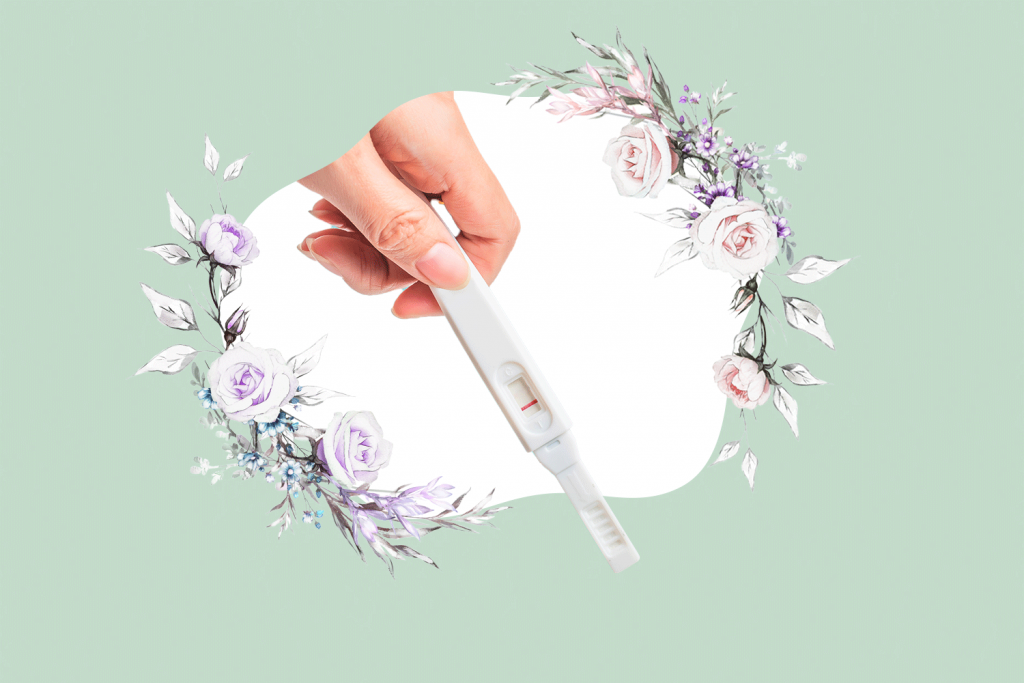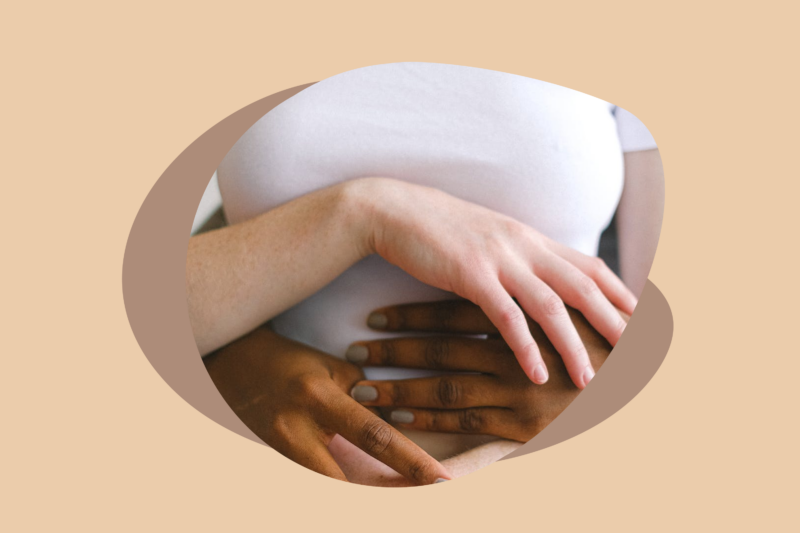9 Reasons Why It’s So Hard to Get Pregnant in 2024
When you were growing up, it might have seemed like getting pregnant was as simple as having unprotected sex. Unfortunately, when you’re actually ready to get pregnant, you quickly learn that this is not the case. Often, it takes months of trying for couples without fertility issues to conceive — and it may take years for those who do struggle with infertility.

12% of women ages 15 to 44 in the United States face difficulty conceiving or carrying a pregnancy to term. This process can be discouraging, especially when you have been trying to conceive (TTC) for a long time without succeeding. So, why, exactly, is it so hard to get pregnant, even when you don’t have underlying health issues?
The complicated answer is that factors like timing, biology, and environment can all interact to make your journey to conception straightforward or more difficult. Whether or not you struggle with infertility, here are some of the reasons why you may find it hard to conceive.
Is It Hard To Get Pregnant?
Yes, getting pregnant can be hard, both physically and emotionally! Your fertile window is a small amount of time each month so it may take some time for conception to occur. (For reference, a healthy woman in her 30s only has a 20% chance of getting pregnant during each menstrual cycle.)
According to research, it can take up to one year for a healthy, fertile couple to conceive. Another study found that it takes an average of 78 sex sessions for a couple to get pregnant. All of this is considered perfectly normal and should not be cause for medical concern — though it’s completely understandable to have some worries throughout the process.
Possible Reasons Why You Can’t Get Pregnant
Without a medical exam, it’s impossible to say for certain why you are having trouble getting pregnant. That being said, there are a number of possible reasons why you may face difficulty conceiving.
Finding it challenging to conceive does not necessarily mean that you (or your partner) are dealing with a serious medical problem. Other factors, like lifestyle and environment, can also influence your ability to get pregnant.
Lifestyle Factors Making It Hard to Get Pregnant
Stress
Stress can influence many areas of our lives, not least of all the female reproductive system. A recent study found that stress activates the hypothalamic-pituitary-adrenal (HPA) axis in women, which may have an inhibitory effect on the reproductive system. Stress also causes widespread inflammation, which can also take a toll on your hormonal and reproductive health. As a result, you might experience delayed ovulation or other issues that impact your ability to conceive normally. While stress cannot directly cause infertility, it is associated with lower odds of conception.
When TTC, doctors recommend minimizing the amount of stress in your life as much as possible. Of course, to a certain extent, stress is an inevitable part of life. Work and interpersonal relationships, for example, can’t be avoided! The best thing you can do to deal with these unavoidable stressors is to learn to cope with stress in a healthy, productive way. Techniques like meditation, yoga, and acupuncture may all be helpful for reducing stress and improving your ability to conceive (you can also look into crystals for fertility).
Weight Fluctuation
What is considered a normal, healthy weight varies from woman to woman. However, it’s important to determine and achieve your ideal weight before getting pregnant, since excessive weight gain or loss can negatively impact your ability to conceive.
Both your ovaries and your adipose (fat) tissue produce estrogen, a pregnancy hormone that helps regulate your menstrual cycle and ovulation. Having excess fat can result in estrogen dominance, making it more challenging for you to get pregnant. Likewise, if you are underweight, your body may not produce enough estrogen in order for you to ovulate regularly.
Some research says that a little weight loss may help improve fertility but it’s important to aim for a healthy BMI rather than just weight (a healthy BMI is between 18.5 and 24.9):
- Having a BMI between 25 and 29.9 is considered ‘overweight’
- A BMI over 30 is considered ‘obese.’
- Having a BMI under 18.5 is considered ‘underweight.’
Some modifications to your eating habits and exercise regimen may help you with fertility too, but a quick fix is not the solution. If you’re struggling with weight gain or loss, speak with your doctor to come up with a plan to get you to the healthiest weight for your unique body.
Sleep Habits
Sleep is a critical component of your physical and emotional health and well-being. Lack of sleep can impact your cognitive thinking, emotional intelligence, weight, and menstrual cycle. Everyone feels cranky after a bad night’s sleep — but good sleep hygiene is especially important for women who are TTC as sleep plays a crucial role in keeping your reproductive hormones in balance.
Healthy sleep habits include going to bed and waking up at the same time every day (yes, even on weekends!), keeping your room at a cool temperature, discontinuing the use of electronics 30 minutes before bedtime, and winding down before bed with a good book or some relaxation exercises. If you try these tips and still can’t catch some zzzs, speak to your doctor as you might be dealing with a more serious sleep issue.
Diet
Another important piece of your overall health that plays strongly into your fertility is your diet. A balanced pre-pregnancy diet not only helps you maintain a healthy weight, but also promotes good hormonal health and regular ovulation. If you are not getting enough of important prenatal nutrients such as folic acid, fiber, iron, and calcium, your body may not be able to support a healthy pregnancy. Avoiding processed foods and foods high in sugar in favor of lean proteins, whole grains, and fresh produce may make it easier for you to conceive.
Age
As much as we would like to believe that age is only a number, that isn’t necessarily true when it comes to conception. Your age does impact your ability to get pregnant, since the number and quality of eggs in your ovaries declines as you get older. Your fertility generally begins to decrease after age 30 and declines significantly after age 35.
While it’s certainly possible to get pregnant in your 40s, your risk of birth defects (such as Down Syndrome) and miscarriage is significantly higher. If you are struggling to get pregnant due to age, using assisted reproductive technology, such as IVF with donor eggs, may help. Talk to your doctor to find out more about your options.
Medical Factors Making It Hard to Get Pregnant
Unexplained Infertility
Infertility is defined as the inability to conceive after one year of trying (if you are under age 35) or six months of trying (if you are over age 35). Some medical causes of infertility, such as endometriosis or polycystic ovarian syndrome (PCOS), are clear, but many are not. Almost one-third of couples facing infertility are diagnosed with unexplained infertility, meaning there is no clear medical reason why they cannot conceive. The good news is that many couples in this camp are able to go on to conceive naturally; however, an unexplained infertility diagnosis can be difficult news to digest.
Endometriosis
Endometriosis is a reproductive disorder in which tissue similar to that of the uterine lining, or endometrium, grows elsewhere in the body. This foreign tissue can cause widespread inflammation; it also bleeds during your menstrual period, just like the endometrium. As a result, women with endometriosis can experience debilitating pelvic pain, heavy periods, painful sex, and other unpleasant symptoms.
If endometriosis grows on or otherwise blocks the ovaries or fallopian tubes, it may impact your ability to conceive naturally (more on endometriosis and pregnancy here). Laparoscopic excision surgery can help your doctor assess how much endometriosis may affect your fertility and remove the endometriosis tissue, which can sometimes help you get pregnant more easily. If you suspect you may have endometriosis, talk to your OB/GYN about your symptoms to begin the path to diagnosis.
Blocked Fallopian Tubes
You may also have difficulty getting pregnant if one or both fallopian tubes are blocked. Usually, these blockages are caused by endometriosis or scar tissue from previous surgeries or pelvic inflammatory disease (PID). When the fallopian tubes are blocked, the egg cannot travel from the ovary in order to be fertilized, impairing your fertility. If only one fallopian tube is blocked, you may eventually be able to get pregnant; however, if both are blocked, you will need to have the blockages removed surgically in order to get pregnant. A fertility specialist can tell you for certain if you might be dealing with a blocked fallopian tube (or two).
Partner’s Medical Issues
Sometimes, you may be perfectly healthy but still unable to conceive. In this case, it’s important to have your partner checked out by a fertility specialist as men can also suffer from medical issues that can impact their ability to conceive.
It’s thought that of the 1 in 7 heterosexual couples dealing with infertility, 30-50% of infertility cases are due to male factor infertility, or infertility that originates with medical issues on the man’s side. There are many issues that can cause male infertility, but most have to do with sperm or ejaculation. When you talk to a fertility specialist, make sure your partner also gets tested for potential fertility problems so you can rule out male factor infertility.
FAQs About Not Getting Pregnant
Being unable to conceive when you want to get pregnant is one of the most difficult and confusing things you can go through as a couple. If you are struggling in your TTC journey, you might still have a lot of lingering questions about what exactly is going on in your body.
In this section, we’ll answer some of the most commonly asked questions regarding difficulties getting pregnant.
I’m Having Regular Periods But Not Getting Pregnant?
Irregular cycles are not the only reason you can struggle to get pregnant. It’s definitely possible to have difficulty conceiving with regular cycles. That’s because periods aren’t the only part of the cycle that you should be paying attention to. If you have trouble conceiving, we always recommend tracking your periods with the Mira digital fertility analyzer, even if everything seems normal.
Other important stuff happens when you aren’t bleeding, and following your cycle with Mira can help you understand your hormones—especially luteinizing hormone (LH). This allows you to know the opportune time to have intercourse for TTC.
I’m Ovulating But Not Getting Pregnant?
Again, problems with ovulation are not the only cause of fertility issues. A wide variety of health issues can make conceiving difficult. If it hasn’t been a year since you started trying (or six months if you are over age 35), you may simply need to continue doing what you are doing.
However, if it has been longer than this, the best thing to do is to schedule an appointment with a fertility specialist. A fertility specialist, or reproductive endocrinologist, can evaluate both you and your partner to help you pinpoint exactly why you might be having troubling getting pregnant. With that knowledge, you can determine the best way to start a family despite struggling with infertility.
I’ve Been Trying To Get Pregnant For More Than 1 Year With No Success?
If you have been TTC for longer than one year, it is always a good idea to schedule an appointment with a fertility specialist. A fertility specialist, or reproductive endocrinologist, can perform specialized tests to help you pinpoint exactly why you and your partner are struggling to conceive. They can also identify and treat potential health issues or suggest targeted lifestyle changes based on your individual situation. Without seeing a doctor, you can’t know for certain why you and your partner have been unable to conceive so far.

When To Get Help
To reiterate, it’s always a good idea to see a fertility specialist if you have been TTC for more than one year (or six months if you are over age 35) with no success. You can start by scheduling an appointment with your PCP or OB/GYN, who can refer you to a fertility specialist they trust. A fertility specialist will talk to you and your partner about your health and potentially run more tests to evaluate your fertility and help pinpoint why you have not been able to conceive.
Mira’s Editorial Process
All content produced by Mira meets stringent editorial standards, ensuring excellence and accuracy in language and medical precision. Every piece undergoes thorough fact-checking and review by qualified professionals. Check out our full editorial process to learn more.










